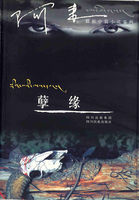I have never approved of the very public manner, in which some of our western friends have conducted what _they_ call the _"Under-ground Railroad,"_ but which, I think, by their open declarations, has been made, most emphatically, the _"Upper_-ground Railroad." Its stations are far better known to the slaveholders than to the slaves. I honor those good men and women for their noble daring, in willingly subjecting themselves to persecution, by openly avowing their participation in the escape of slaves; nevertheless, the good resulting from such avowals, is of a very questionable character. It may kindle an enthusiasm, very pleasant to inhale; but that is of no practical benefit to themselves, nor to the slaves escaping. Nothing is more evident, than that such disclosures are a positive evil to the slaves remaining, and seeking to escape. In publishing such accounts, the anti-slavery man addresses the slaveholder, _not the slave;_ he stimulates the former to greater watchfulness, and adds to his facilities for capturing his slave. We owe something to the slaves, south of Mason and Dixon's line, as well as to those north of it; and, in discharging the duty of aiding the latter, on their way to freedom, we should be careful to do nothing which would be likely to hinder the former, in making their escape from slavery. Such is my detestation of slavery, that I would keep the merciless slaveholder profoundly ignorant of the means of flight adopted by the slave. He <251 CRAFTINESSOF SLAVEHOLDERS>should be left to imagine himself surrounded by myriads of invisible tormentors, ever ready to snatch, from his infernal grasp, his trembling prey. In pursuing his victim, let him be left to feel his way in the dark; let shades of darkness, commensurate with his crime, shut every ray of light from his pathway; and let him be made to feel, that, at every step he takes, with the hellish purpose of reducing a brother man to slavery, he is running the frightful risk of having his hot brains dashed out by an invisible hand.
But, enough of this. I will now proceed to the statement of those facts, connected with my escape, for which I am alone responsible, and for which no one can be made to suffer but myself.
My condition in the year (1838) of my escape, was, comparatively, a free and easy one, so far, at least, as the wants of the physical man were concerned; but the reader will bear in mind, that my troubles from the beginning, have been less physical than mental, and he will thus be prepared to find, after what is narrated in the previous chapters, that slave life was adding nothing to its charms for me, as I grew older, and became better acquainted with it. The practice, from week to week, of openly robbing me of all my earnings, kept the nature and character of slavery constantly before me. I could be robbed by _indirection_, but this was _too_ open and barefaced to be endured. I could see no reason why I should, at the end of each week, pour the reward of my honest toil into the purse of any man. The thought itself vexed me, and the manner in which Master Hugh received my wages, vexed me more than the original wrong.
Carefully counting the money and rolling it out, dollar by dollar, he would look me in the face, as if he would search my heart as well as my pocket, and reproachfully ask me, "_Is that all_?"--implying that I had, perhaps, kept back part of my wages;or, if not so, the demand was made, possibly, to make me feel, that, after all, I was an "unprofitable servant." Draining me of the last cent of my hard earnings, he would, however, occasionally--when I brought <252>home an extra large sum--dole out to me a sixpence or a shilling, with a view, perhaps, of kindling up my gratitude; but this practice had the opposite effect--it was an admission of _my right to the whole sum_. The fact, that he gave me any part of my wages, was proof that he suspected that I had a right _to the whole of them_. I always felt uncomfortable, after having received anything in this way, for I feared that the giving me a few cents, might, possibly, ease his conscience, and make him feel himself a pretty honorable robber, after all!
Held to a strict account, and kept under a close watch--the old suspicion of my running away not having been entirely removed--escape from slavery, even in Baltimore, was very difficult. The railroad from Baltimore to Philadelphia was under regulations so stringent, that even _free_ colored travelers were almost excluded. They must have _free_ papers; they must be measured and carefully examined, before they were allowed to enter the cars; they only went in the day time, even when so examined. The steamboats were under regulations equally stringent. All the great turnpikes, leading northward, were beset with kidnappers, a class of men who watched the newspapers for advertisements for runaway slaves, making their living by the accursed reward of slave hunting.
My discontent grew upon me, and I was on the look-out for means of escape. With money, I could easily have managed the matter, and, therefore, I hit upon the plan of soliciting the privilege of hiring my time. It is quite common, in Baltimore, to allow slaves this privilege, and it is the practice, also, in New Orleans. A slave who is considered trustworthy, can, by paying his master a definite sum regularly, at the end of each week, dispose of his time as he likes. It so happened that I was not in very good odor, and I was far from being a trustworthy slave.















